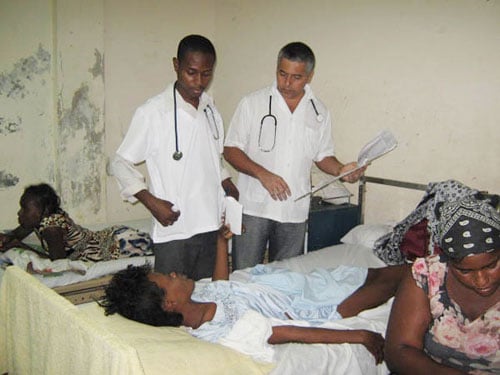Zimbabwe: Petition to drop false charges against political activists
August 14, 2011 – Links International Journal of Socialist Renewal -- The following petition is being circulated in Australia. Please feel free to adapt the text for use in your country (e.g.
Thailand: A new 'settlement' between Yingluck Shinawatra's government and the elites?

Thai MPs elected Yingluck Shinawatra on August 5 as the country's first female prime minister.
Bolivia: Evo Morales' fight to control the military

By Federico Fuentes
Aotearoa/New Zealand: Building an eco-socialist network in New Zealand

Statement by Socialist Worker central committee
Tariq Ali on riots in England: Why here and now?; Neoliberalism’s chickens coming home to roost

By Tariq Ali, London
August 9, 2011 -- Why is it that the same areas always erupt first, whatever the cause? Pure accident? Might it have something to do with race and class and institutionalised poverty and the sheer grimness of everyday life?
The ruling Conservative Party-Liberal Democrats (Con-Dem) coalition politicians (including new New Labour, who might well sign up to a national government if the recession continues apace) with their petrified ideologies can’t say that because all three parties are equally responsible for the crisis.
They made the mess.
They privilege the wealthy. They let it be known that judges and magistrates should set an example by giving punitive sentences to protesters found with peashooters.
They never seriously question why no policeman is ever prosecuted for the 1000-plus deaths in custody since 1990.
Whatever the party, whatever the skin colour of the MP, they spout the same clichés.
Yes, we know violence on the streets in London is bad. Yes, we know that looting shops is wrong.
But why is it happening now? Why didn’t it happen last year?
On the meaning of ‘popular front’

The Bolivarian movement led by Hugo Chávez contains bourgeois forces and has been the scene of repeated struggles between popular and bureaucra
Israel: Mass protest movement offers hope
300,000 protesters in Tel Aviv, August 6, 2011.
By Guy Gillor
August 8, 2011 – Links International Journal of Socialist Renewal -- The 2011 global uprisings remind us how infectious the revolutionary spirit can be. In the last three weeks, a social movement within Israel has sprung to life in an almost spontaneous manner. A small housing protest that started on July 14 has swept hundreds of thousands of people into protest across the country. As in many other countries, people in Israel face rapidly increasing living costs and privatisation of public assets.
Vietnam: Extraordinary petition by 'patriotic personalities'

By Michael Karadjis
July 29, 2011 -- Vietnam from the Left, posted at Links International Journal of Socialist Renewal with the author's permission -- Below is an extraordinary document initiated by some 20 prominent Vietnamese academics, former military figures, former officials, writers etc, who express great unease about the current situation for Vietnam, faced on the one hand by increasingly aggressive Chinese actions in the East Sea (also known as the South China Sea), and on the other by an economic situation characterised over the last few years by mounting crisis and severe inflation, which is hammering people’s living standards.
Fact-finding delegation reports on post-earthquake Haiti

Cuban and Cuba-trained Haitian doctors at work in Haiti.
July 26, 2011 -- Canada Haiti Action Network -- Three Canadian solidarity activists conducted a 10-day fact-finding and solidarity mission to Haiti from June 20 to 30, 2011. The delegation, organised by Haiti Solidarity BC, the Vancouver affiliate of the Canada Haiti Action Network, travelled throughout the earthquake zone, including Port-au-Prince, Léogâne and Jacmel.
We visited neighbourhoods, camps of displaced people, medical centres and human rights and social organisations there to gain an overview of the most pressing needs in Haiti. During some of our visits and interviews, we were joined by other Canadians working on aid projects.
Iceland’s loud 'No!': Can't pay, won't pay

By Silla Sigurgeirsdóttir and Robert H. Wade